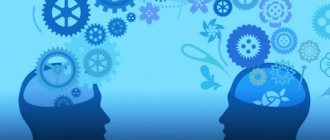Sometimes a person's ability to understand the people around him helps him a lot in life. He can predict the behavior of others and his own in various circumstances and recognize emotions and intentions based on verbal and nonverbal communication. All these talents determine the so-called social intelligence of a person.
Concept
Social intelligence (SI) is the ability to distinguish and understand the actions of all people. The concept also includes the skill of communicating with others, establishing long-term contacts with individuals, and easily finding a common language with all people. The normal level of its development allows a person to quickly adapt to society, interact correctly with people, and achieve their goals. Therefore, it is very important to always maintain it at a decent level.
The concept is often closely associated with emotional intelligence, which makes it easy to recognize the emotions, intentions or motivations of others. Many people tend to combine both intelligences into one. Nevertheless, the concept of social type is usually presented in one of three variants:
- A separate type of mind. One of the components of a cognitive skill. Directly related to mathematical and verbal intelligence.
- Skills, knowledge, attitudes. Everything that was acquired by a person during socialization in society.
- Personal trait. A feature of human character on which the future depends, including communication skills.
Any of the three views on the concept is correct. They can even be combined, which allows us to create a clearer picture in understanding the phenomenon.
Future self-realization depends on the level of development of such intelligence.
Components
Important. All people do something, counting on the success of the activity; this largely determines the meaning and amount of effort expended. All actions in society depend on other people with whom interaction is necessary when moving towards achieving a goal.
This is what SQ is for, since problem solving is based on understanding human behavior and the ability to influence it.
Several groups of abilities that make up social intelligence have been identified:
- educational;
- emotional;
- behavioral.
They, in turn, also include several components:
- Cognitive. These are knowledge, memory, intuition, forecasting:
- Social knowledge. Knowledge about people, rules of communication, effective interaction.
- Social memory. Remembering names, events, faces, and what people did and said.
- Social intuition. Unconscious understanding of feelings, moods, motives and all other aspects of people's behavior.
- Social forecasting. Conscious prediction of everything related to human behavior.
- Emotional. These are expressiveness, empathy, self-regulation:
- Social expressiveness. We are talking about the degree and methods of manifestation of emotions and feelings, emotional sensitivity.
- Empathy. The ability to empathize, the ability to put oneself in the place of another.
- The ability to self-regulate. The ability to self-control and regulate emotions.
- Behavioral. This is perception, interaction, adaptation:
- Social perception. The ability to hear, see, feel and recognize other manifestations of behavior.
- Social interaction. Varying degrees of ability to communicate with people in society.
- Social adaptation. The skill or gift to adapt to circumstances and people.
Concept in psychology
The concept itself was introduced by Edward Lee Thorndike back in 1920. It is its definition that, as a rule, is considered the main one and is included in the dictionary of psychological terms. By social intelligence he understood the wisdom manifested in relationships between people. A little later, other scientists from the field of psychology drew attention to the phenomenon.
Henry Allport
The American G. Allport described the phenomenon somewhat differently. In his opinion, it represents one of the 8 personal qualities that are required to understand other people. The main determinant of such intelligence, as Henry believed, is the ability to quickly judge others.
M. I. Bobneva
The first Soviet psychologist to describe SI was M. I. Bobneva. In her opinion, there is no connection between the social and general level of intelligence. At the same time, even highly developed mental abilities are not a guarantee of easy and successful adaptation in society, nor is the ability to fully communicate with people and behave in a dignified manner.
G. Eysenck
The scientist G. Eysenck went further. His interpretation implies that social intelligence should be understood as reasoning skills, quality of memory, learning ability, strategic thinking, adaptation to the world around us, and ease of solving various problems. At the same time, he imagined that this concept is closely related to biological and psychometric intelligence. Therefore, he combined them into one scheme, according to which the last two types of intelligence are part of the social.
D. Guilford
Psychologist D. Guilford believed that the main component of SI is cognition. The concept includes the following factors and skills:
- identifying the type of expression of thoughts from the context;
- perception of properties of objects when receiving information;
- predicting the consequences of any actions;
- understanding the connection between pieces of data and the differences in the same values in perception (also applies to the interaction of people) and the reasons for certain behavior of people.
But the main thing was not how the scientist imagined this concept. Much more important is the model he developed in the form of a cube, which shows the structure of human intelligence.
G. Gardner
Psychologist G. Gardner identified two additional types of intelligence that have a direct impact on social intelligence. Intrapersonal, by which he meant the skill of addressing one’s own psychological processes, understanding one’s thoughts, actions, assessing opportunities, motivation and feelings. Interpersonal, responsible for the ability to understand the feelings, thoughts, desires of others.
General view of psychologists
If we generalize the view of most famous psychologists, then by social intelligence we can safely mean the skills of understanding people and communicating with them. Many other scientists are of the same opinion as those described above.
What is it: definition
Important. SQ is a set of abilities that influence the success of social interaction.
It consists of the ability to understand oneself and the behavior of other people, as well as the ability to act according to the situation, and is a very important quality, as it is necessary for effective interpersonal interaction.
The term was introduced to denote the ability to act successfully in society , to behave most effectively in any situation.
This is the ability to understand the mood of others and their personality traits, the ability to self-present in society and various interactions, a kind of talent that allows you to get along with people and adapt to the behavior of others in society. This global ability, based on a combination of other personality traits (intellectual, behavioral, communicative, etc.), determines the understanding of what people say and do, the ability to:
- social interaction;
- decision making;
- forecasting the development of events in interpersonal communication.
The personal component of social intelligence is quite large, but it can be corrected from the outside (special techniques and maximum training interaction).
You will learn about the year in which Thorndike introduced the term social intelligence and what is the history of the concept of SQ, as well as the definitions of this concept and approaches to understanding it, the relevance of the study today, methods of study and measurement, and research on SQ.
Levels
Immediately after the scientific community was able to describe social intelligence, it decided to develop a scale for dividing it into levels. For this purpose, D. Gilforod created a special psychological test. He tested the speed and originality of solving problems of varying complexity. This made it possible to give an accurate answer to how savvy the subject is in the social sphere. Based on the results, it was possible to identify three levels, each of which describes the development of different social intelligence.
In Russia, a technique based on the Guilford test, created by E. S. Mikhailova, has become widespread.
Short
People with low levels of social intelligence constantly experience various difficulties. As a rule, they are caused by a person’s behavior, and he himself does not understand it. Such people have a deviant behavior and are always guided by instincts, and most of their actions are caused by impulses. They are unable to get along with other people because... Even with the good development of relationships of any kind, at a certain moment their peculiarities appear, which completely excludes continued communication with the person and leads to misunderstandings or quarrels.
They are unable to solve such problems on their own, which is why people are often forced to resort to the help of loved ones.
Average
Those with an average level of SI act in a patterned manner. In everyday affairs, they almost always achieve their goals. Communication with people is not difficult. However, it is difficult for such a person to cope with unusual or complex tasks, which is why he can simply abandon this or that idea and continue to live according to his usual pattern.
High
A socially intelligent person easily copes with the most difficult tasks. They almost always come out of intractable situations as winners. It is very easy for them to make acquaintances, communicate with people and manipulate them, changing their thoughts, views, desires. Such people are leaders.
How to develop skills?
Important. Skill development begins in the first year of life and continues into adulthood.
Then, from time to time, the formed social intelligence is adjusted in connection with current events.
Formation of SQ
Initial formation occurs in the family, then the influence of friends, relatives, preschool institutions, schools is added, then educational institutions plus the environment that accompanies each stage.
Periods of development
There are five stages of development. At the zero stage (presocial), the child is not aware of the differences, but gradually he begins to separate emotions, the feelings of others and his own:
- at the first stage, the ability to analyze words and behavior develops;
- on the second - empathic abilities, attempts occur to influence people and situations;
- on the third - there is an understanding of the inconsistency of people's behavior;
- on the fourth – the idea of human interaction is structured;
- on the fifth, skills are honed.
We talked about the formation, developmental features, methods of diagnosis and research and adaptation of children with disabilities here.
Levels
There are three levels: high, medium, low.
- In the first case, this means that the person has high skill in communicating and managing people, and controlling situations.
- In the second - patterned behavior, an average level of skills and knowledge necessary for successful interaction in society.
- In the third - destructive behavior, low efficiency, poor recognition of people's behavior.
SQ measurement problems
The first test to measure SQ was created by T. Khan. Later, the D. Guilford test appeared, which is still used today.
Attention. It must be said that tests are not an accurate assessment of this type of intelligence; today there are no ways to fully “measure” it.
Techniques
Recommendations for SQ development include special techniques. The most effective methods for increasing your SQ level include:
- empathy training;
- analysis of human behavior in videos/films;
- replaying situations;
- development of non-verbal skills;
- role-playing games.
It is necessary to develop abilities such as:
- memory;
- oratory;
- attention;
- analytics, etc.
General self-development will automatically have a positive effect on your SQ level.
Conditions
At the presocial stage, it is necessary to help the child achieve success in terms of separating the thoughts and feelings of other people from his own, and developing an interest in social interaction.
- At the first stage, it is necessary to pay attention to the development of subjectivism, to teach us to understand, first of all, ourselves, and only then those around us.
- At the second and third stages, you should pay attention to the ability to reflect, analyze the behavior and words of others, the ability to take the position of another, and cooperation.
- At the fourth stage, you need to continue to improve your skills and begin training that allows you to successfully interact in society (more practice).
Age characteristics
One of the most important factors that influences the characteristics of social intelligence is the age period. A child requires one approach, and a young man requires a completely different one. It is very important to take into account ontogenesis and give a person the opportunity to develop intelligence naturally.
The development of SI continues throughout life.
Children
Preschool or primary school age requires regular participation in role-playing games. This will stimulate the growth of the level of social intelligence. It is equally important during this period to allow the child to spend time with peers. If he has at least a few friends, this will completely eliminate social backwardness in the future.
The type of teacher who teaches the child in kindergarten or school is also of great importance. In the first case, it is necessary that he stimulates children to play those games that require active communication. In the second, it is important that it does not limit the behavior of children during recess and allows them to run, communicate and interact with each other as much as possible. His competence is the most important factor in the development of a child. With the wrong approach to education, the development of SI can be very low. Problems at this age are the main cause of antisocial behavior in adulthood.
Teenagers
Adolescence is the most difficult age. Parents find it difficult to cope with children who have begun to grow up. It is important not to spoil everything, because... During this period, a tendency to communicate, self-awareness, and understanding of the people around them are formed. In order for everything to go as smoothly as possible, parents must understand that a teenager must independently decide how and with whom to communicate. Violation of his personal space or desires can lead to a decline in social intelligence. If you do this regularly, it will be low.
Boys
During adolescence, the ability to anticipate the results of one’s actions and the skill of predicting other people’s behavior in various situations are formed. At this age, gender differences between people are of great importance.
Boys develop verbal communication skills much faster, while girls develop sensitivity to relationships with a good perception of non-verbal communication, which makes it much easier for the latter to assess the tone and coloring of the interlocutor’s words. Problems with communication at this age can be caused by improper upbringing in childhood, when the child’s teacher unnecessarily limited him and deprived him of the opportunity to improve his intelligence, both mental and social. Wrong influence on older children rarely leads to serious social deviations.
Mature
An adult always continues to develop in the social sphere. He begins to realize his mistakes, analyze them, and draw the necessary conclusions. The best characteristic of this age is wisdom. This is what appears in a person with maturity. With proper social development, the individual understands the limitations of knowledge and also learns to promptly identify all sorts of problems. People with developed social wisdom are much more successful compared to others.
Functions
- Communication-value is associated with the ability to communicate, understand (not only others, but also oneself), and assimilate the norms of relationships.
- Cognitive-evaluative is the ability to achieve a goal with the help of received information through cognition and assessment of situations and people's behavior.
- Reflective-corrective ensures making changes in the interaction process in order to obtain the desired result, helps to understand the perception of others.
Development
It's never too late to improve. Therefore, everyone should know how to improve their social intelligence. If you at least occasionally do exercises and try to increase social development, then gradually it will reach a high level. To do this, it is necessary to positively influence all components of the SI:
- self-knowledge;
- self-regulation;
- sociality;
- empathy;
- motivation.
There are many ways in which SI can be developed. They should be put into practice regularly to achieve maximum effect.
There are also simple ways to increase social intelligence. For example, banal participation in board games with friends.
Nonverbal interaction
You should always pay attention to the actions of your interlocutor. This is especially true for his nonverbal signals. Any movement carries great meaning. To learn to understand them well, you should read a specialized book. A good training would be to watch a film without sound and independently determine the meaning of the characters’ movements. It is also important to manage your own non-verbal language to more accurately convey your emotions.
Self-confidence, communication
Much of improving social intelligence skills comes down to confidence and the ability to communicate. It is important to feel strong posture, your own strength, and forget about all the negativity. To do this, you can play sports, buy expensive clothes, etc. Also, regular communication with people has an effective effect on confidence if a person finds it difficult. Therefore, you should try to communicate with a large number of people, as well as regularly make new acquaintances. At the same time, you need to learn to listen, speak correctly, and observe your interlocutors.
If a person does not know how to refuse, then this can also be an excellent way to train. Every refusal is a contribution to development.
Thinking
Correct thinking is another way to develop social intelligence. There is no need to dwell on problems and your own mistakes. It is important to remember that the past cannot be changed. If you can correct the situation now, then you need to do it. In other cases, there is no need to think about it, because this causes nothing but negativity, negatively impacting communication skills and overall quality of life.
Emotional component
Controlling your own emotions, self-observation, and careful analysis is a good method to help improve social intelligence. To do this, you need to understand what causes what emotions, think about the reasons, and also learn to control them. If you can’t control them, then don’t be upset, because all methods require good training. At the same time, you need to try to reduce the number of negative emotions, increasing positive ones to the maximum.
But even more important is the ability to read other people's emotions. And not just read them, but at the same time empathize with people, showing empathy. Listen to them, try to show support. This will improve not only your social intelligence skills, but also your relationships with people. Good, understanding people are always appreciated by others.
How to develop social intelligence?
Many people are concerned with the development of social intelligence as an opportunity to increase their status in society. To do this, it is necessary to understand what the model of this phenomenon includes. The structure of social intelligence is multidimensional and contains such components as:
- personality potential – contact, compatibility with other people;
- self-awareness, absence of barriers and neglected complexes;
- social modeling phenomena;
- understanding people's motives and behavior.
To raise the bar of social intelligence, it is necessary to improve some knowledge and get rid of other habits that interfere with contacts in society. The very first thing is to go beyond egoism and turn your attention to other people, that is, increase your sensitivity. It would be helpful to learn to do the following things:
- understand body language;
- read emotions;
- capture the mood of the interlocutor;
- listen and hear;
- manage your own emotions;
- speaking in public without embarrassment.









